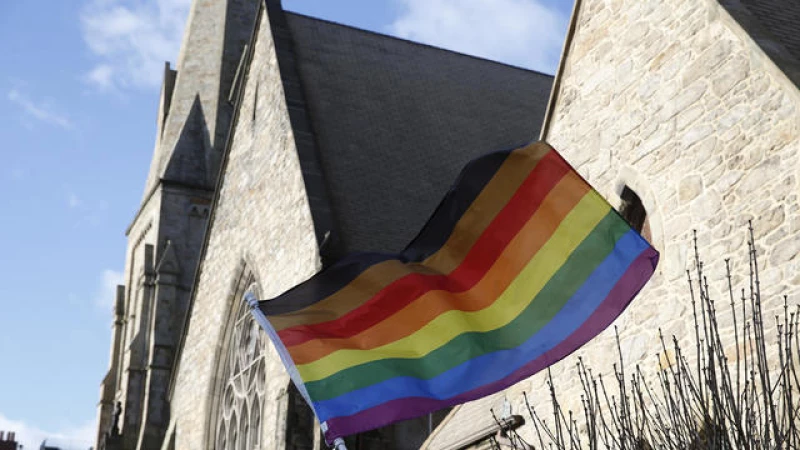In a historic move, United Methodist delegates have repealed their church's longstanding ban on LGBTQ clergy without any debate. The rule that previously forbade "self-avowed practicing homosexuals" from being ordained or appointed as ministers has been removed.
During their General Conference, the first of its kind in five years, delegates voted 692-51 in favor of lifting the ban. This decision marks a significant shift from past conferences where the ban was reinforced amidst controversy and protests. However, with many conservatives who supported the ban leaving the denomination in recent years, this General Conference has taken a notably progressive stance.
Following the vote, applause erupted in various parts of the convention hall. Observers from LGBTQ advocacy groups embraced each other, some shedding tears of joy. "Thanks be to God," exclaimed one attendee.
- Reasons behind the departure of numerous U.S. congregations from the United Methodist Church
The modification does not mandate or explicitly support LGBTQ clergy, but it signifies that the church no longer prohibits them. This change is likely to primarily impact U.S. churches, as United Methodist bodies in other countries, such as in Africa, have the authority to establish rules for their respective regions. The new measure becomes effective immediately following the conclusion of the General Conference, set for Friday.
The decision was so overwhelmingly supported that it was included in a "consent calendar," which consists of typically uncontroversial measures bundled together for a single vote to expedite the process.
Another approved measure prohibits district superintendents — a regional administrator — from penalizing clergy members for officiating a same-sex wedding or for choosing not to do so. It also prevents superintendents from mandating or prohibiting a church from hosting a same-sex wedding.
This measure further dismantles the various LGBTQ restrictions that have been ingrained in different parts of the official church laws and policies. Delegates had started the process of dismantling such policies on Tuesday.
Delegates are also anticipated to vote today on whether to replace the current official Social Principles with a new document that no longer labels the "practice of homosexuality … incompatible with Christian teaching" and now defines marriage as between "two individuals of faith" rather than between a man and a woman.
Historic Changes in Denomination's Stance on LGBTQ Issues
A significant shift has occurred within a denomination that has grappled with LGBTQ issues for over fifty years during its General Conferences, typically held every four years. Delegates made history on Tuesday by voting to eliminate mandatory penalties for officiating same-sex marriages and to lift the bans on LGBTQ candidates for ministry and funding for gay-friendly ministries.
However, these changes come in the wake of a quarter of U.S. churches parting ways with the UMC. The decisions could potentially lead to the departure of certain international churches, particularly in regions like Africa, where more traditional views on sexuality are prevalent, and where same-sex relationships are criminalized in some nations.
Just last week, the conference approved a plan for regionalization, granting U.S. churches similar autonomy to other global regions within the church. Pending local ratification, this change could result in a scenario where LGBTQ clergy and same-sex unions are accepted in the U.S. but not in other areas.
Between 2019 and 2023, over 7,600 predominantly conservative congregations in the U.S. disaffiliated due to discontent over the denomination's failure to enforce its prohibitions on same-sex marriage and LGBTQ ordination.
Additionally, the conference sanctioned the departure of a small cluster of conservative churches in the former Soviet Union.
Once the 2023 departures are accounted for, the UMC's U.S. membership, which stood at 5.4 million in 2022, is anticipated to decline, marking a significant change for a denomination that was recently the third largest in the country with a presence in nearly every county.
With a membership of 4.6 million in various countries, predominantly in Africa, the denomination's global presence remains significant. Previous estimates had indicated even higher numbers, highlighting the ongoing growth and reach of the organization.







